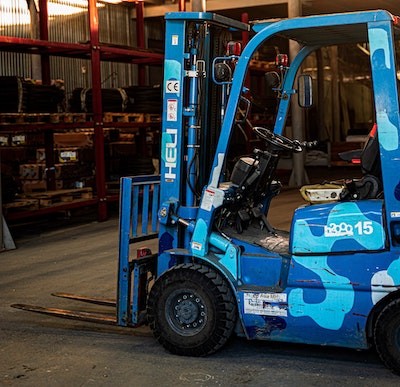
With the issue of Decree 11/02/2021, which implements EU Directive 2019/130, Annexes XLII and XLIII of the Consolidated Occupational Health and Safety Act (Legislative Decree 81/2008) have been amended. To the list of carcinogenic substances, mixtures and processes, reference to work involving exposure to diesel exhaust emissions was added.
Since 21 February 2023, therefore, the new professional limit for all workers subject to exposure to diesel engine exhaust gases has come into force. This limit value is 0.05 mg/m3 expressed as Elemental Carbon (EC).
Today, diesel engines are used in a wide variety of vehicles, heavy equipment and other machinery used in a large number of activities: mining, transport, construction, agriculture, maritime and manufacturing. Diesel engine exhaust contains a mixture of gases and very small particles that can create a health hazard if not properly controlled: the measurement of these particles is the basis for the new exposure limit, expressed as Elemental Carbon.
In detail, Diesel Particulate Matter (DPM) is a component of the exhaust of diesel engines that includes soot particles consisting mainly of carbon, ash, metal abrasion particles, sulphates and silicates. Soot particles have a solid core consisting of Elemental Carbon, with other substances bound to the surface, including organic carbon compounds known as aromatic hydrocarbons.
The Elemental Carbon (EC) is that fraction of particulate matter containing only carbon, not bound to other elements, composed mainly of sub-micron particles with a graphitic structure and black colour. It is thermally stable, low volatile and inert in the atmosphere, resistant to oxidation at temperatures below 400 °C.
Elemental carbon is the most representative measure of exposure to diesel exhaust particulate matter because it constitutes a large portion of the mass of emitted particulate matter, can be quantified at low levels and its only significant source in many workplaces is the combustion of fossil fuels and diesel engines in particular.
The activities for which it is appropriate to carry out a risk assessment are all those involving potential exposure to exhaust emissions from diesel engines, such as machine repair shops, vehicle overhaul centres, establishments where diesel c trucks are used, etc.
Temporarily excluded from the above obligations are underground mining and tunnel construction activities, which will have to comply by 21 February 2026.
CATAS ENVIRONMENT is available to companies that require environmental monitoring of particulate matter from diesel engines and the analytical determination of elemental carbon according to industry standards and methods.
Remember that the CATAS ENVIRONMENT section is able to provide a service of excellence for the following environmental matrices:
For info:Daniele Colussi
0432 747261
colussi@catas.com


